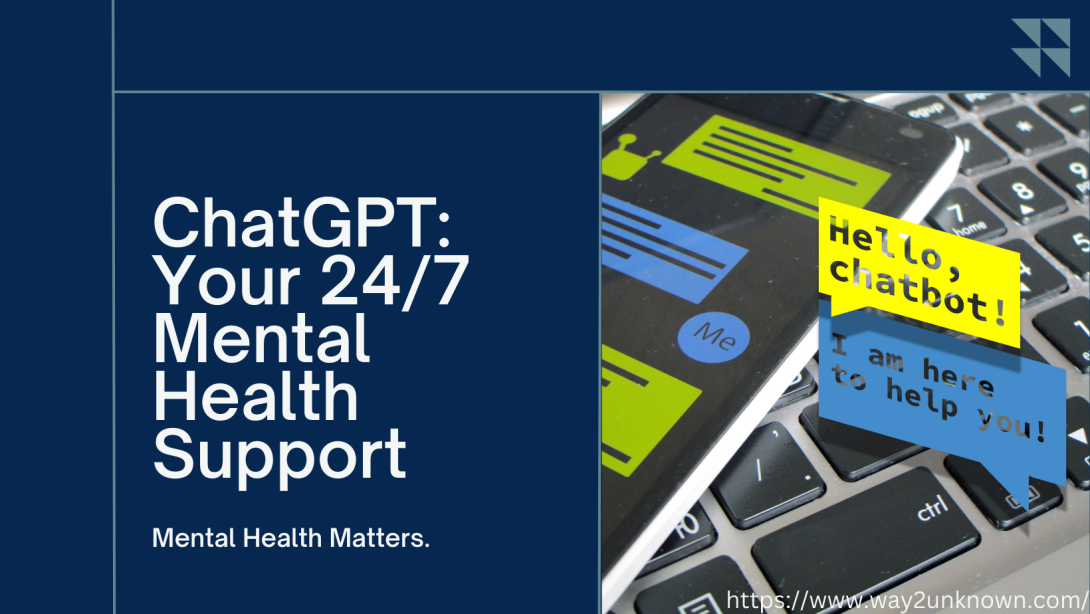ChatGPT: Enhancing Mental Well-being Through Conversational Support.

Introduction:
In today’s digital age, technology has become an integral part of our lives, and its potential to positively impact mental health support is immense. One groundbreaking tool that has emerged is ChatGPT, an AI-powered conversational agent that is transforming the way we provide mental health support. With its ability to engage in empathetic and informative conversations, ChatGPT is revolutionizing the accessibility and effectiveness of mental health care.
1. Understanding ChatGPT:
ChatGPT is an advanced AI model developed by OpenAI, designed to generate human-like responses in conversations. It utilizes a vast amount of training data to learn patterns, context, and provide relevant information. ChatGPT is continuously improving through iterations and feedback from users.
2. The Role of ChatGPT in Mental Health Support:
ChatGPT acts as a virtual companion, providing a safe and judgment-free environment for individuals to express their thoughts and emotions. It offers personalized support by tailoring conversations to the unique needs and experiences of each individual. ChatGPT can provide information about mental health conditions, coping strategies, and resources for seeking professional help.
3. Benefits of ChatGPT in Mental Health Support:
Accessibility: ChatGPT can be accessed anytime, anywhere, providing support to individuals who may not have access to traditional mental health services.
Anonymity and Privacy: Users can engage in confidential conversations, alleviating concerns about stigma or judgment.
Immediate Support: ChatGPT offers real-time responses, providing immediate comfort and guidance during critical moments.
4. Limitations and Ethical Considerations:
ChatGPT is not a substitute for professional therapy or medical advice. It is important to ensure that users are aware of the limitations and encourage them to seek appropriate professional help when needed. Safeguards must be in place to protect user privacy and data security.
Conclusion:
ChatGPT is a potent tool that is reshaping the landscape of mental health support. While it cannot replace human interaction, it complements existing services by providing accessible, immediate, and personalized support. As technology continues to advance, ChatGPT holds great promise in improving mental health outcomes and breaking down barriers to care.